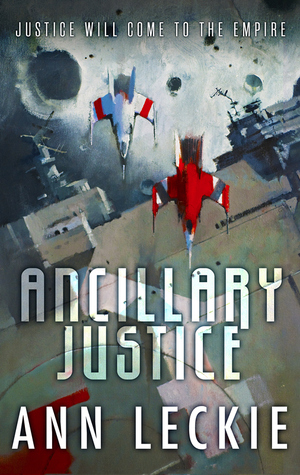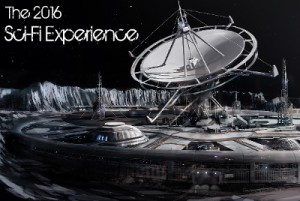Published: October 2013 byOrbit
Format reviewed: Paperback, 386 pages
Series: Imperial Radch #1
Genres: Science Fiction
Source: Dymocks
Reading Challenges: The 2016 Sci-fi Experience
Available:Abbey’s ~ Amazon ~ Barnes & Noble ~ Book Depository ~ Booktopia ~ Dymocks ~ Kobo
On a remote, icy planet, the soldier known as Breq is drawing closer to completing her quest.
Breq is both more than she seems and less than she was. Years ago, she was the Justice of Toren – a colossal starship and an artificial intelligence controlling thousands of soldiers in the service of the Radch, the empire that conquered the galaxy.
An act of treachery has ripped it all away, leaving her with only one fragile human body. But that might just be enough to take revenge against those who destroyed her.
There’s been a lot of hype about this book, and particularly around its use of gender, so I admit I was a bit skeptical when I first picked it up. However, I can now say it deserves the praise it has been getting.
Ancillary Justice does some fascinating things with its writing style. Part of that ties into gender. Breq belongs to a culture that does not use linguistic or visual cues to distinguish gender. Throughout the novel, the default pronoun is she. Occasionally, there will be some subtle indications that a character may be male, despite the pronoun. However, generally it remains ambiguous. I had expected this to be a twist that had already been spoiled, so I was surprised to discover the story is upfront about Breq’s difficulty in distinguishing gender. From time to time when in a culture not her own she struggles to correctly gender someone she’s interacting with, but as a reader I was never made to feel like it mattered and I loved that.
Style is also used effectively to convey Breq’s unusual point of view. Breq is an AI and, as such, sees the world very differently to the humans she interacts with. Much of the emotional language is stripped out; while it is clear Breq experiences emotions, she does not always recognise them. Nor does she always recognise them in others, leaving the reader to pick up the clues and piece them together.
As an AI, Breq experiences the world from multiple points of view. This has the curious effect of allowing the story to be told from both a limited first-person perspective as well as a omniscient third-person point-of-view, making the most of both. It also means that the reader has to pay attention, as occasionally two conversations are happening simultaneously on the page.
While I found Ancillary Justice fascinating on an intellectual level, it took me a long time to settle into it. I was halfway through before I found the emotional hook, but once it had me it refused to let me go until the end. It is definitely a book that rewards patience.
Gender is not the only issue the book deals with; it is equally preoccupied with matters of class, colonialism and race. But the heart of the story is about identity more broadly. It examines the fiction of identity as a unified state and the notion that identity can be changed without consent.
Ancillary Justice is a brilliant book and a fantastic way to round out my reviews for 2015.


